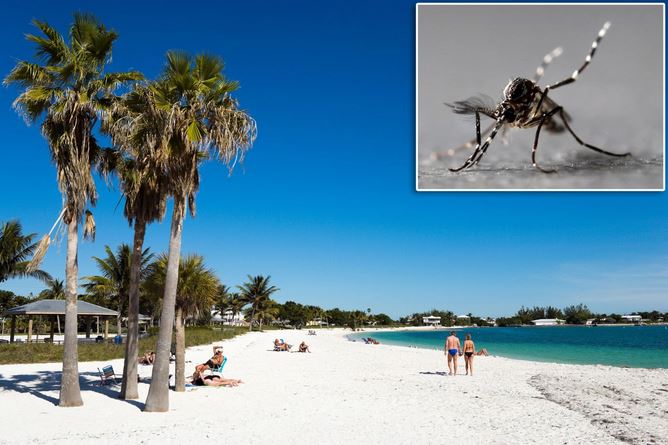Genetically Modified Mosquitoes Released – Causing Concern for Some
Thousands of genetically modified mosquitoes have started being released in Florida this week in an attempt to get rid of the disease-spreading species of mosquito.
The project, which comes from British biotech company Oxitec, is aiming to reduce the population of Aedes aegypti mosquitoes, which can spread diseases such as Zika and dengue fever.
The state will release almost 144,000 nonbiting male mosquitoes in the coming weeks that are meant to mate with females (the ones who bite).
Then, a so-called “death mechanism” would prevent any of the resulting female offspring from surviving.
“The female offspring of these encounters cannot survive, and the population of Aedes aegypti is subsequently controlled,” Oxitec said in a statement.
The genetically modified insects will be placed in six locations in the Florida Keys. 12,000 mosquitos are expected to emerge each week for the next 12 weeks.
The US Environmental Protection Agency, the State of Florida, and the local mosquito control disctrict’s board all approved the project after years of public comment and official review.
“As we are seeing development of resistance to some of our current control methods, we are in need of new tools to combat this mosquito,” Andrea Leal, executive director of the Florida Keys Mosquito Control District said in a press release.
The project is meant to control the population of the Aedes aegypti mosquito, which can spread dengue fever, Zika virus and yellow fever, as well as heartworm to pets and animals.
“The Aedes aegypti mosquito makes up about 4 percent of the mosquito population in the Keys but is responsible for virtually all mosquito-borne diseases transsmitted to humans,” the mosquito control district said.
However, some locals are against the idea.
Mara Daly, a Key Largo resident, has been protesting the project for years. She fears that it could harm people and the environment.
“Why do they not perform a simple test to satisfy locals who are forced to be part of this project trial?” Daly asked.
It isn’t the first time that Florida authorities have authorized novel methods to kill this disease-transmitting mosquito species.
One program released male mosquitoes carrying a bacteria called Wolbachia, which rendered their offspring nonviable, in Key West in 2017 and in Miami in 2018.
Key West has been eyeing the use of such mosquitoes since 2012, NBC News reported, due to an outbreak of dengue fever — but today the threat posed by the Aedes aegypti is even bigger.
In 2016, the Zika virus, a pathogen once thought harmless and mostly confined to Asia and Africa, began to spread via Aedes aegypti mosquitoes across the Western Hemisphere.
Soon, people in places such as Brazil and Puerto Rico began to give birth to babies with the now-characteristic birth defects caused by infection with the virus during pregnancy.
That year, Oxitec’s small experiment in Brazil found the genetically modified mosquitoes reduced target mosquito populations by 80 percent, NBC News reported.









Recent Comments